#Abertawe
Explore tagged Tumblr posts
Text
every time i listen to episode 5 of camlann i picture the green man i once met in the kilvey community woodland in swansea/abertawe

he feels like a friend
GOD episode 5 slaps. the Story. the Score. the Imagery. GAH
this time around i heard the soft bagpipes in the score when gwaine was in the castle and wowowow it's just sooooo well done
28 notes
·
View notes
Note
shwmae and greetings from ukraine! just wanted to share this book i got a few years ago in a secondhand bookstore in lviv of all places. and for the low low price of 175 uah! honestly what a steal. glad to have a piece of history of your beautiful country <3
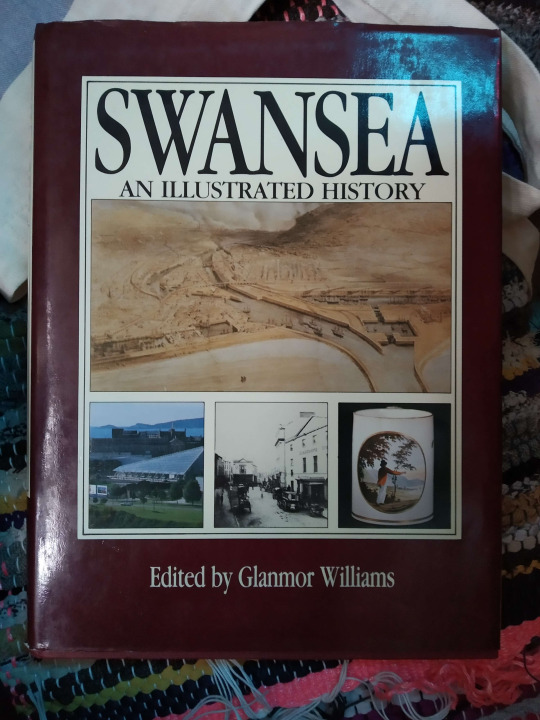
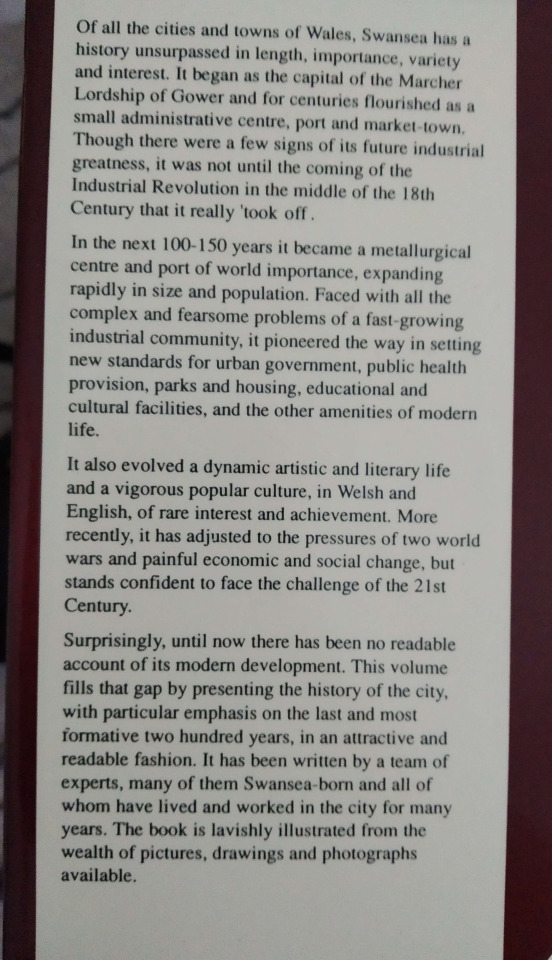
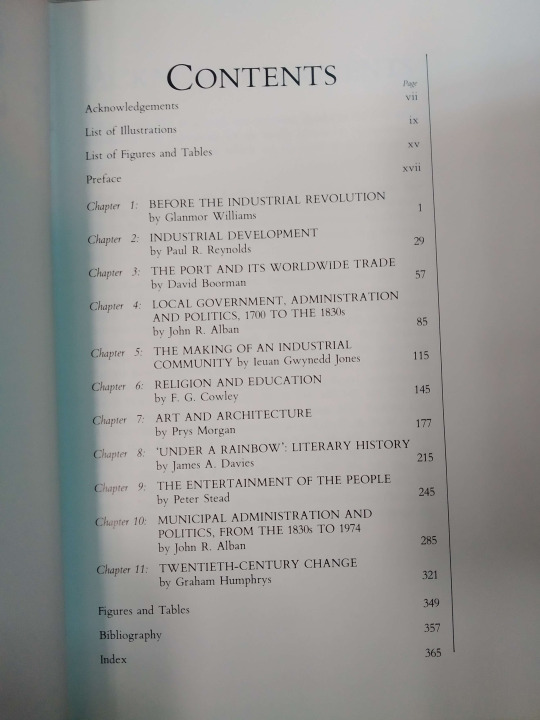
never been to wales (yet!) but when i do i have to give swansea a visit
GIVE IT UP FOR INDUSTRIAL DEVELOPMENT IN SWANSEA!
This is an Abertawe Appreciation Zone. If you're from Swansea, well done. 👏👏👏
#I swear I used to have that book#it might've been on brynmawr instead#but it feels so familiar#anyway. what a great deal#postio cymru#cymru#abertawe#llyfr
25 notes
·
View notes
Text

Liverpool v Swansea Town (1-2)
FA Cup Quarter Final, Anfield, Liverpool, 1964
(Swans' captain Brian Hughes with mascot Denise Peyton)
#swansea#liverpool#anfield#swansea city#liverpool fc#football#soccer#abertawe#cymru#wales#modern football is rubbish#1960s#fa cup#traditional welsh dress
8 notes
·
View notes
Text

From the On Your Face Collective Instagram!
Last few days of the exhibition! It's flown by already 😄
#cwiar#cymraeg#welsh#cymblr#celf#celfydd#Abertawe#Swansea#also don't mind that my face is red in that picture - I have a skin condition dw about it#also yes that is my left foot in my artwork#Instagram
11 notes
·
View notes
Text

#swansea city afc#last game of the season#swansea.com stadium#joe allen#wales#football#futbol#soccer#captain#Kyle Naughton#jack army#jack bastard#sheep shaggers#south wales#Abertawe#yma o hyd#cymru#cymraeg#International#efl#championship#fifa#uefa#twitter#photography#sports#legend#🐐#goat
4 notes
·
View notes
Text
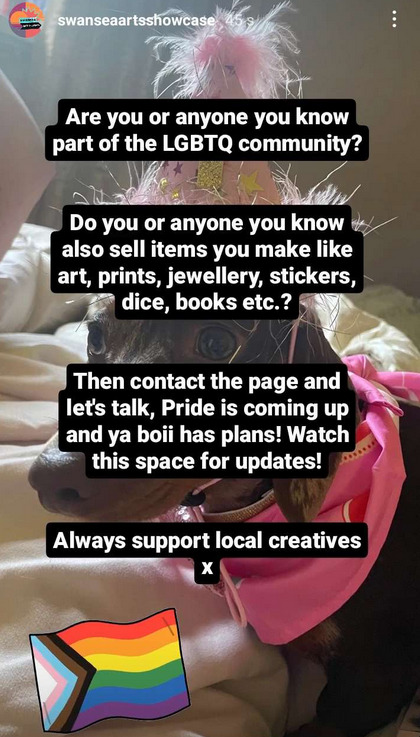
"Ya boiis" are at it again lads!
Hit us up, either here or on Instagram if you're interested!
20 notes
·
View notes
Text
Jack Bastard 🦢

Luka doing side quests 😭
19 notes
·
View notes
Note
I’m saving up my Welsh questions so I’m not a total bother!!
1. I can broadly understand why location names in Wales are different in English (colonialism ☹️) but can you explain Castell-nedd v Neath? Maybe I haven’t gotten far enough yet but it seems to be an outlier in that they just dropped a whole part of the name?
2. Cinio v swper, I’m assuming (perhaps incorrectly hence the checking) that cinio = noon meal and swper = evening meal? Is that right or is it backwards?
3. I am deeply interested in the etymology of llun because it appears to be both a picture and (+ dydd) Monday. Are they linguistically connected??
4. Speaking of days. Am I right in inferring that dydd iau means Thursday and ddydd Iau means on Thursday? I can’t quite differentiate why the spelling changes.
5. Speaking of days part two. Nos Mercher v bore dydd Mercher. Why does nos appear to drop the dydd? Does bore ever do the same?
6. Moving away from days. There seems to be no difference between dych chi’n and wyt ti’n as far as I can tell. Are they interchangeable or are they formal/informal like vous/tu? Or is this a dialect thing like different regions??
7. I am learning about eisiau and I have a question about contractions. It appears to be dw i’n mwynhau but dw i eisiau. Why no ‘n?? I know the i’n is i yn so where’s the yn with eisiau? 🤔
Welsh my beloved you are so fun to learn but Duolingo sucks at explaining nuance.
HA okay *cracks knuckles*
1. Location names are always a bit of a wildcard between languages, because sometimes they corrupt differently and sometimes they have wildly different origins and meanings in the first place. Castell Nedd - Neath is actually a relatively mild one; it's just that people abbreviated it more in English than in Welsh. A similar thing happened to Penybont ar Ogwr - Bridgend.
By contrast, Abertawe - Swansea is totally different, with different meanings. Ditto Drefdraeth - Newport, Caergybi - Holyhead, etc. Wild shit.
2. Like a lot of languages, cinio can either mean lunch or evening meal depending on who uses it - the English equivalent is 'dinner'. Younger generations generally mean lunch. Swper is a direct transliteration of supper, though, with the same meaning (I personally use 'te' instead for evening meal). So, in short, you're broadly right, but it's a bit ambiguous.
3. Oh, you'll like this! As far as we know, it's from Proto Indo European lewk, meaning 'bright; to shine, to see' - we also get 'goleu' from it. The theory is that Dydd Llun therefore gets a similar etymology to Monday, because it refers to the moon (lleuad/luna). Llun (picture), meanwhile, is a thing you see, depicting what you see. The fact that they ultimately corrupted into the same word is coincidental.
4. There's some fun stuff here, okay.
So, you are hitting up against everyone's favourite Celtic language quirk which is MUTATIONS ┌(★o☆)┘ These pop up in many funky ways of course. In this instance, it's not a plural but it IS trying to tell you something. So:
Dydd Iau: Thursday
Dyddiau Iau: Thursdays
Fi'n mynd i'r dre ddydd Iau: I'm going to town on Thursday
Basically, the mutation is there to indicate that there's an invisible preposition going on. If we hypercorrected it would be "Fi'n mynd i'r dre ar ddydd Iau", and that's what triggers the mutation; but in modern Welsh it's a quirk of this particular context that we do away with the preposition, because the mutation makes it clear it's there invisibly. Why do we do this? Unknown.
5. This is a slightly weird one and I suspect the answer lies somewhere in the fact that 'night' just means the dark bit while 'day' can either mean the light bit OR a 24 hour period containing both.
But, actually: you can actually drop the dydd for bore, too. It's dealer's choice. BUT, you cannot have the dydd for nos Fercher. In English, the 'day' part of 'Wednesday' is kind of invisible, and just means the 24 hour block. But in Welsh, they're still separate words, and it very much means 'the light part'. So 'nos dydd Mercher' would be like saying 'Wednesday Day Night.'
6. It's formal/plural Vs informal. Chi is formal (or plural), ti is informal.
Occasionally monoglot English Tumblrs make posts about how they reckon we should bring the you/thou divide back to English, and as a person who speaks a language that still pulls this bullshit and occasionally has to play the "How formal am I supposed to be with this person" game, every time it makes me sneer and think about how those same people complain all the livelong day about invisible social rules. You do not want this, folks. Be suitably grateful to your forebears.
7. Ah, yes, eisiau is a law unto itself.
So, the yn/'n in Welsh is normally there because the verb 'to be' gets split in half, and half gets attached to the following verb to make that verb active, right? So for example:
Rwy'n cerdded - I'm walking
Roughly, but not literally, equivalent to the English "I am walking", except if you were to split "Rwy'n" out into "Rwy yn", neither of those words means "I" or "am" - it's not a literal step by step translation.
'Yn' gets bundled in with the verb, more often than not. And again, while this is not a literal translation, it makes the verb into an '-ing' word. Welsh does not distinguish between "I walk" and "I'm walking" - it's always "I'm walking."
But eisiau is different because it's not used grammatically like that. You personally cannot actively want something in Welsh. But, there can be a want upon you. So instead of "I am wanting", you say "There is a want upon me."
So, "I want to go to town": "Mae arna'i eisiau mynd i'r dre".
Duolingo might be asking you to construct that slightly differently, though; they might want "Mae eisiau arnaf i" or something similar. But ultimately that's what it's doing.
I hope this was helpful! Let me know if anything is baffling, still.
125 notes
·
View notes
Text


Spring in Abertawe
202 notes
·
View notes
Text






Still thinking about my hike up Kilvey Hill
Mynydd Cilfái / Kilvey Hill
Abertawe, Cymru / Swansea, Wales
26th October, 2024
8 notes
·
View notes
Text

🏳️⚧️🏳️🌈🏴 2025 Prides in Wales - Digwyddiadau Balchder 2025 🏳️⚧️🏳️🌈🏴 Again, so many Prides happening in Wales this year! Here's a list of them, with more details to be added and updated once they're revealed by the Pride! Sut gymaint o Balchder yng Nghymru eto! Dyma rhestr - wnai adio mwy pan bydd mwy o fanylion yn cael eu datgelu! May - Mai 11 - Colwyn Bay Pride Bae Colwyn @togetherforcolwynbay 17 - Balchder Machynlleth Pride @balchder_mach_pride (with other events in the week before) 17 - Swansea Pride Abertawe @swanseapride 18 - Swansea Family Pride / Abertawe Pride Teuluol at the National Waterfront Museum @museumwales 24 - Blaenau Gwent’s 1st Pride! From 12:30pm at @bedwelltyhouse @blaenaugwentcouncil June - Mehefin 7 - Bridgend Pride @bridgend.pride 7 - Llanelli LQC Mardi Gras @llanelliqueercollective 7 - Monmouth Pride Trefynwy @monmouth.pride.trefynwy 7 - Porthcawl Pride Party @ The Beachcomber Porthcawl (on Facebook) 7 - Prestatyn's first Pride! 7 - Torfaen Pride (on Facebook) 14 - Barry Pride Y Barri @barry.pride 14 - Pontardawe Pride (on Facebook) 21 - The Big Queer Picnic Cardiff @thebigqueerpicnic 21 - Pride Cymru Cardiff @lgbtpridecymru 28 - Abergavenny Pride Y Fenni @abergavennypride 28-29 - Towyn Pride Weekend @knightlysbar 29 - Cowbridge Pride Y Bont-faen @cowbridgepride July - Gorffennaf 5 - Pembrokeshire Pride Sir Benfro, Dewsley Farm @pembspride 5 - Caerffili Pride @pridecaerffili 5 - Caldicot Pride / Balchder Cil-y-coed @caldicotpride 5 - North Wales Pride Balchder Gogledd Cymru, Bethesda @northwalespride 19 - Flint Pride 26 - Brecon Pride Balchder Aberhonddu @breconpride 26 - Wrexham Pride Balchder Wrecsam @pridewrecsam 28-29 - Llansteffan's first Pride! August - Awst 2 - Llandovery Pride @heartofwaleslgbtq 9 - NPT Pride (NPT Pride 2025 on Facebook) @nptpride 17 - Glitter Pride @glittercymru 22-24 - Trans Pride Cardiff @cardifftranspride 30 - Carmarthen Pride / Balchder Caerfyrddin @carmarthenpride
September 6th - Newport Pride in the Port @prideintheport.newport + Pride in Aberystwyth @prideinaber will return on the 25th of April 2026 Anything left out? Let me know in the comments or in a DM please! Diolch! 🌈
Full post (with images) on Instragram
#most of these are instragram @'s or jyst type in the name on google#pride#wales#lgbtqia#lgbtq#lgbt#Idk what to tag lol#apologies if the trans emoji doesn't work on my browser#and that one pride has been lol
53 notes
·
View notes
Note
hi!!! curlster!!! ok i was like half asleep when i sent that other ask but i missed you a lot also you already heard this but i finally met Daisuke and and ummmm.... Scrumtush..... what was his name.. Swerve..... Swagster..... let meSwansea (/ˈswɒnzi/ SWON-zee; Welsh: Abertawe [abɛrˈtawɛ]) is a coastal city and the second-largest city of Wales. It forms a principal area, officially known as the City and County of Swansea (Welsh: Dinas a Sir Abertawe).[4]
The city is the twenty-eighth largest in the United Kingdom. Located along Swansea Bay in south-west Wales, with the principal area covering the Gower Peninsula, it is part of the Swansea Bay region and part of the historic county of Glamorgan and the ancient Welsh commote of Gŵyr.[5]
The principal area is the second most populous local authority area in Wales, with an estimated population of 241,282 in 2022.[2] Swansea, along with Neath and Port Talbot, forms the Swansea Urban Area, with a population of 300,352 in 2011. It is also part of the Swansea Bay City Region.
During the 19th-century industrial heyday, Swansea was the key centre of the copper-smelting industry, earning the nickname Copperopolis.[6][7]

Awww, I don'What's all this, then? Huh. daisuke tuiold me . ok forgive me i am like half asleep : daisule. Daisuje. D. snarlllllll. Daisuke told me. That. um. um. i forgot. he said something about Sopas. did i send you sopas? i feel like i sent you sopas. but if i didn't . i will send you sopas again
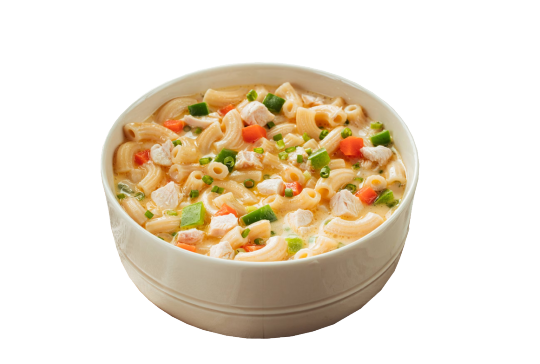
sopas Mind Object Treat #MyTreat
ok im going. bed Goodnight Purlster nonsensechemicalsster Out !
Hey!! Missed you a lot too, mate. Did I say that? I think I already said that. Still true! Yeah, Daisuke and— Not quite. Uh…
…Okay! I mean, that’s… true, but I’m assuming the Swansea you met is a man, not a city. …Right? Hah.
Who are these guys?
Sorry…?
Oh! Yeah, don’t think I’d be able to stomach that with the chicken, but I can admit it looks pretty good. Hell, I’d kill for fresh produce. Your treat!
(Purlster?) Rest well!!
12 notes
·
View notes
Text
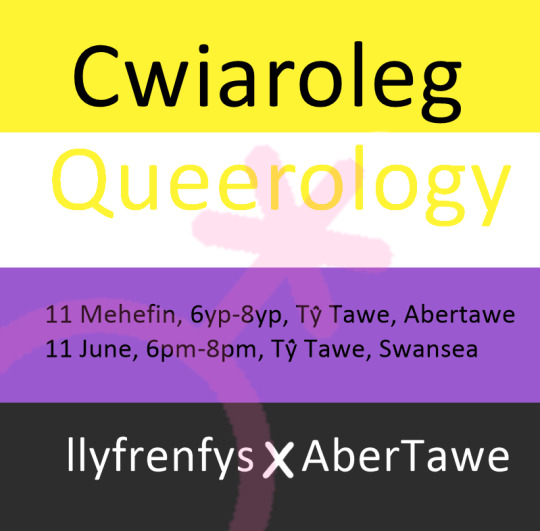
Cwiaroleg!
Dw i wedi bod yn gweithio gyda @/queertawe i greu sesiwn i drafod terminoleg anneuaidd yn y Gymraeg.
Amser: 6yp-8yp 11 Mehefin yn @/tytawe, Christina St, Abertawe. Mae tocynnau am ddim, ond archebwch drwy @/queertawe.
Dw i'n symud fflat ym mis Mai a Mehefin. Ni allaf ddod yn anffodus! Ond gobeithio y bydd y sesiwn yn ddefnyddiol ac yn ddiddorol.
/
Queerology!
I've been working with QueerTawe to create a session to talk about Welsh nonbinary terminology.
Time: 6pm-8pm 11th June at @/tytawe, Christina St, Swansea.
Tickets are free but please book your place through @/queertawe.
I'm moving flat in May and June. Unfortunately I won't be able to attend the session myself. But I hope the session is useful and interesting!
#cymraeg#welsh#cwiar#lhdt#cymblr#hoyw#anneuaidd#rhyweddgwiar#dirywedd#nonbinary terminology#nonbinary#endangered languages#lgbt terminology
35 notes
·
View notes
Text
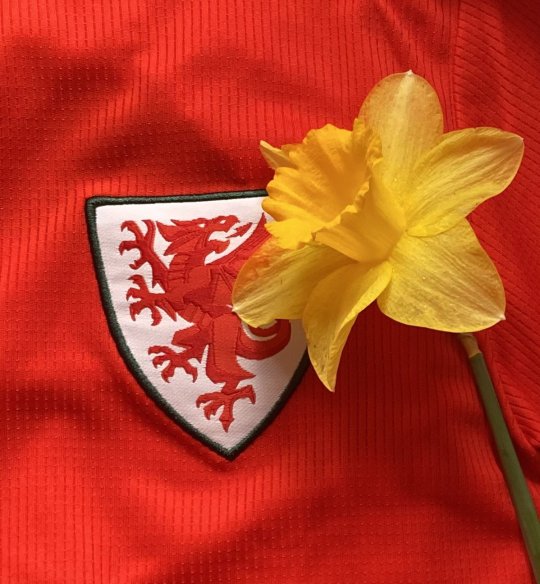
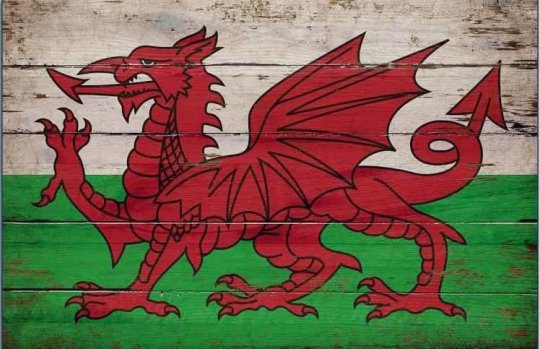
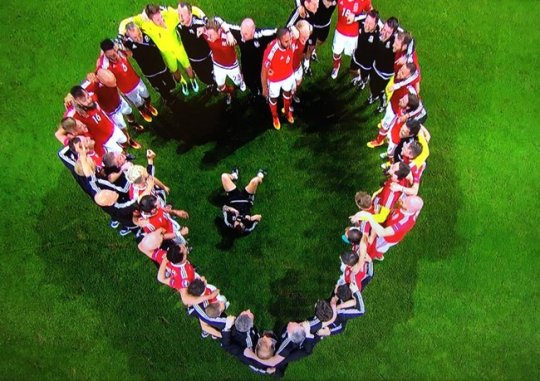
Dydd Gŵyl Dewi Hapus🏴
#Dydd Gŵyl Dewi Hapus#st davids day#wales#welsh#cymru#cymraeg#Abertawe#daffodil#leek#dragon#drago#red wall#yma o hyd#pêl droed#rugby#gareth bale#alun wyn jones#sophie ingle#princess diana#cawl#Newport#cardiff#bangor#wrexham#football#swansea
10 notes
·
View notes
Text

You haven't seen the last of us yet! Swansea Arts Showcase is running a Pride event!
We're looking for queer artists, crafters, writers for an arts fair later this month/early next month (we'll update soon with further details when we solidify the venue).
Interested? Shoot us an email at [email protected] or contact Kit (@garthcelyn) here on this very Tumblr or Sam over on Instagram
Hope to see you there!
13 notes
·
View notes
Text

Dylan Thomas: Word and Image – An Exhibtion Based on The Jeff Towns / Dylans Bookstore Collection, Foreword by Sean Doran, Introduction by John Ackerman, Text by Jeff Towns, Swansea Leisure, Swansea-Abertawe, 1995
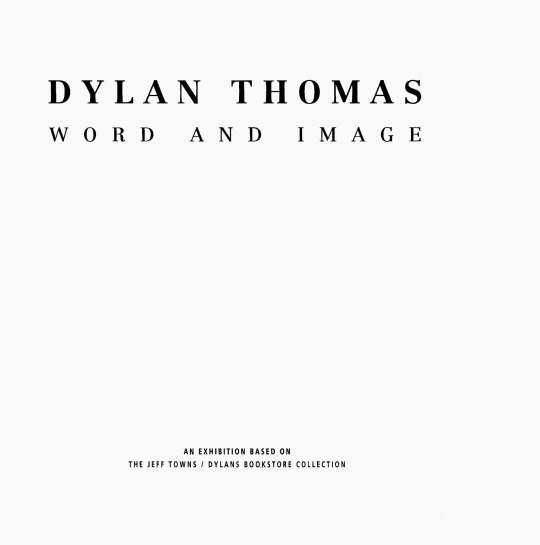
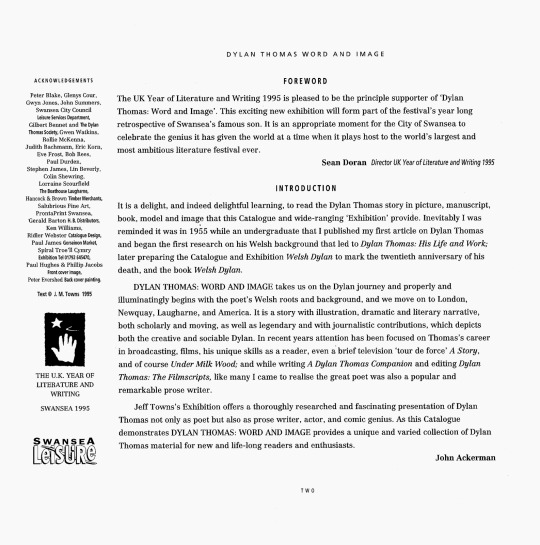

Front Cover Image: Paul Hughes & Phillip Jacobs Back Cover Painting: Peter Evershed
#graphic design#art#poetry#drawing#visual writing#catalogue#catalog#cover#back cover#dylan thomas#sean doran#john ackerman#jeff towns#paul hughes#phillip jcobs#peter evershed#swansea leisure#1990s
12 notes
·
View notes